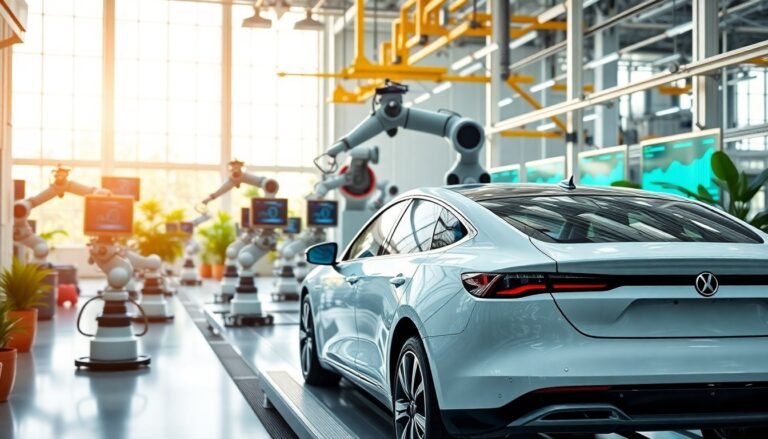Argomenti trattati
The automotive industry is undergoing a significant transformation as it adapts to evolving customer demands and environmental concerns. With the rise of integrated platforms, businesses can streamline operations, connect critical data, and foster sustainable practices. This article delves into how these technologies can enhance agility and reshape the automotive landscape.
Market Overview and Emerging Trends
In today’s automotive market, the emphasis on sustainability is paramount. Companies are increasingly focusing on reducing their environmental footprint while ensuring profitability. By leveraging integrated platforms, manufacturers can connect vehicle and customer data, facilitating sustainable mobility solutions. This approach not only meets consumer expectations but also aligns with global initiatives aimed at reducing carbon emissions.
Recent data indicates that the automotive sector is witnessing a shift towards electric vehicles and eco-friendly practices. As more consumers prioritize sustainability, manufacturers that adapt to these trends will likely see increased loyalty and market share. Additionally, the integration of artificial intelligence into operations allows companies to anticipate market changes, optimize supply chains, and enhance product offerings.
Investment Opportunities in Automotive Innovation
The integration of advanced technologies presents numerous opportunities for investment within the automotive sector. By focusing on the development of smart products and digital twins, companies can enhance their product lifecycle management. This not only improves efficiency but also provides a competitive edge through innovative offerings.
Furthermore, as manufacturers optimize their operations, there is a growing demand for solutions that facilitate compliance and improve supply chain resilience. Investments in AI-driven procurement processes, real-time visibility tools, and sustainability-focused production methods will be critical for companies aiming to thrive in this dynamic environment.
Data shows that businesses that proactively manage their supply chain and optimize costs are better positioned to protect their margins and enhance profitability. As the automotive landscape continues to evolve, the ability to make informed, data-driven decisions will be essential for long-term success.
Practical Insights for Automotive Stakeholders
For automotive companies looking to navigate this transformative period, several practical strategies can be implemented. First, embracing a culture of collaboration across teams can significantly enhance project management and product development. By linking requirements to business data, stakeholders can ensure transparency and traceability throughout the product lifecycle.
Secondly, companies should prioritize the integration of their data systems. By unifying product, raw material, and packaging specifications, organizations can create a single source of truth that informs decision-making and fosters innovation. This approach not only streamlines operations but also enhances agility in responding to market demands.
Finally, as the industry moves towards more sustainable practices, companies must consider the long-term impact of their operations. By focusing on eco-friendly production methods and promoting electric vehicles, automotive stakeholders can contribute to a circular economy while also driving growth.
Future Outlook and Strategic Recommendations
Looking ahead, the automotive industry will continue to evolve in response to consumer preferences and regulatory pressures. Companies that invest in integrated platforms and prioritize sustainability will likely emerge as leaders in this competitive landscape. The ability to anticipate tariff impacts, adapt supply strategies, and optimize costs will be crucial in protecting margins and ensuring profitability.
In today’s automotive market, the emphasis on sustainability is paramount. Companies are increasingly focusing on reducing their environmental footprint while ensuring profitability. By leveraging integrated platforms, manufacturers can connect vehicle and customer data, facilitating sustainable mobility solutions. This approach not only meets consumer expectations but also aligns with global initiatives aimed at reducing carbon emissions.0

